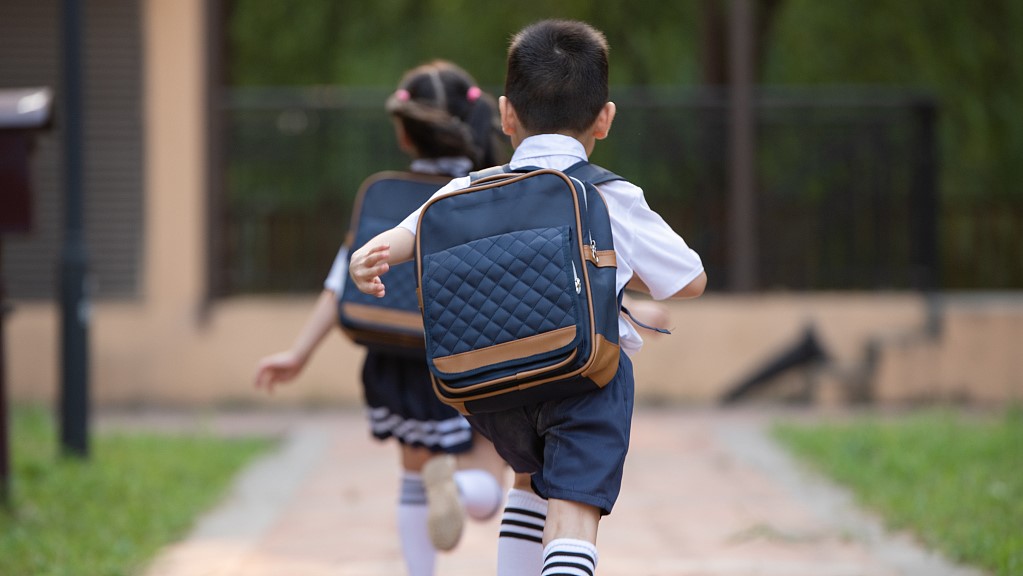05:40

Even as most schools in China kicked off a new school year on Tuesday marking the beginning of a full reopening of the country's education system, an expert said that the event would have a positive trickle down effect on the country's economy.
Wang Yan, a senior specialist at China's National Institute of Educational Sciences (NIES), said that the school reopenings are bringing about many changes in consumption and businesses — specifically in transport, electronics, clothing, and the housing market. The NIES is a research arm of China's Ministry of Education.
"School reopenings are bringing about many changes in consumption and businesses. Number one, transportation and energy related to transportation. Students take public transportation such as buses and subways and also private transportation like cars and taxis, and also bicycles. The traffic is much higher than before. Number two, all the commodities related to schooling for example, digital devices like computers, laptops, and school bags and clothing. Number three is the food market because most schools provide lunch either free of charge or free to the students, and also more students will dine out in the restaurants close by the school. Number four is the housing market. For those parents who are living far away from schools. They will consider renting or even buying," Wang said.
"Last but not least, we will see many changes in the education sector itself," Wang added, pointing out that the NIES expects an increased growth in the early childcare and education and Technical and Vocational Education and Training (TVET) sectors especially those in private and non-government sectors.
"As they can now receive more students to their institutions, especially those families with dual earners. Another is TVET, because many TVET education programs could not operate properly because of restrictions, But now it will attract more students, and also see a rise," said Wang.
E-education to grow over long-run
While online education boomed during the early days of the COVID-19 pandemic, Wang said there may be a drop as the cases reduce and students move from home-based learning to classroom-based learning. However, Wang added that she still expects online and digital learning tools to grow over the longer term.
"People see the benefits of online learning. For example, people realize there are more choices and courses, and education content, and also teachers have more methods and approaches to interact and chat and access. I believe over the long run, compared to the pre-pandemic era, we would still see a rise or more use and integration of tech in education, and more online education.
Chinese overseas students, however, may decline due to the pandemic, as safety and security become more of a concern.
"Obviously now, more people will choose more in China. Because China has effectively contained (the virus). For example, I know many are considering changing their preferred destination from the U.S. to European countries," she said, but added that international education will still be an important aspect of the country's education.
China's full reopening of schools comes amid continuing measures to prevent any further spread of the novel coronavirus, with roughly 25 percent of students still out of school are due to return to classes this week, reported the Associated Press.
Lessons are being held on a staggered schedule with mandatory mask wearing and social distancing. College undergraduates are also due to return to campus next week, with Beijing ordering tests for all 600,000 students taking up places at the city's institutions.